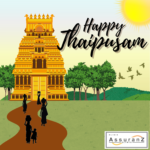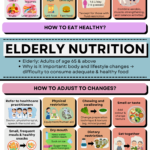癌症及其原因一直是人们讨论的热门话题。致癌物被定义为可以促进癌症发展的物质。致癌食品特指可能或可能导致癌症的食品。因此,在本帖中,我们将讨论致癌食品。
Group 1: Carcinogen to human
第一类:对人类的致癌物
• Alcoholic beverages / 含酒精的饮料
Alcoholic beverages are group 1 carcinogen, meaning that sufficient evidence is available to conclude that they can cause cancer. The cancer that are associated with alcohol include head and neck cancer, oesophageal, liver, breast and colorectal cancer.
酒精饮料是第一类致癌物,这意味着有足够的证据可以得出它们会导致癌症的结论。与酒精有关的癌症包括头颈癌、食道癌、肝癌、乳腺癌和结肠直肠癌。
• Areca nut (Buah pinang) / 槟榔
Commonly known as buah pinang in Malay, areca nut is a group 1 carcinogen. It can lead to oral and oropharyngeal cancer.
槟榔在马来语中通常被称为buah pinang,是属于第一类致癌物。它可能导致口腔癌和口咽癌。
• Processed meat / 加工肉制品
Processed meat is meat that has been transformed through salting, curing, fermentation, smoking, or other processes to enhance flavour or improve preservation. The examples include hot dogs, ham, sausages, corned beef and beef jerky. Also classified as a group 1 carcinogen, eating processed meat can cause colorectal and stomach cancer.
加工肉制品是通过盐腌、腌制、发酵、熏制或其他过程进行转化以增强风味或改善保存的肉。这些包括热狗、火腿、香肠、咸牛肉和牛肉干。它也被归类为第一类致癌物,食用加工肉类会导致结肠直肠癌和胃癌。
• Salted fish (Chinese style) / 中式咸鱼
Chinese style salted fish, a group 1 carcinogen, is associated with nasopharyngeal and stomach cancer.
中式咸鱼是第一类致癌物,与鼻咽癌和胃癌有关。
• Aristolochic acid / 马兜铃酸
Normally found in birthwort or pipevine plant and wild ginger, aristolochic acid is a group 1 carcinogen. Some herbal traditional medicine or supplement may also contain aristolochic acid. The consumption of aristolochic acid especially on a long term is associated with kidney and urothelial cancer.
马兜铃酸通常存在于生菜或胡椒植物和野生生姜中,是第一类致癌物。一些传统草药或补充剂也可能含有马兜铃酸。长期食用马兜铃酸与肾癌和尿路上皮癌有关。
• Benzo-a-pyrene
Benzo-a-pyrene is a group 1 carcinogen, produced in certain organic compound that are not completely burnt. It is abundantly present in food such as charcoal-grilled and smoked meat, charred and over-fried food. It is associated with oesophageal, stomach, intestine, skin, bladder, lung, and liver cancer.
Benzo-a-pyrene是第一类致癌物。它是在某些未完全燃烧的有机化合物中产生。它大量存在于食物中,例如炭烤和熏肉、烧焦和过度油炸的食物。它与食道癌、胃癌、肠癌、皮肤癌、膀胱癌、肺癌和肝癌有关。
Group 2A: Probably carcinogen to human
第2A类:可能对人类致癌
• Very hot beverages (above 65 degrees Celsius) / 非常热的饮料(65摄氏度以上)
Very hot beverages with temperature above 65ºC is group 2A carcinogen, meaning that there is limited evidence that it can cause cancer in humans and at present it is not conclusive. Drinking very hot beverages can result in constant irritation of body surfaces, becoming the probable cause to oesophageal cancer.
温度高于65摄氏度,非常热的饮料是第2A类致癌物。有限的证据表明它会导致癌症,但目前尚无定论。喝非常热的饮料会导致身体表面不断受到刺激,成为可能导致食道癌的原因。
• Red meat / 红肉
Red meat, a group 2A carcinogen, is all mammalian muscle meat, such as beef, veal, pork, and lamb. There is strong but limited evidence of an association between eating red meat with colorectal cancer.
红肉是第2A类致癌物,是所有哺乳动物的肌肉,如牛肉、小牛肉、猪肉和羊肉。强有力但有限的证据表明吃红肉与结直肠癌之间存在关联。
• Acrylamide / 丙烯酰胺
Acrylamide is a substance formed through chemical reaction of sugars and an amino acid in high temperature cooking. It is categorized as group 2A carcinogen. Food sources high in acrylamide include French fries and potato chips; crackers, bread, and cookies; breakfast cereals; and coffee. Reviews of studies on human so far suggest that dietary acrylamide is not likely to be related to risk for most common types of cancer.
丙烯酰胺是糖与氨基酸在高温蒸煮中发生化学反应而形成的物质。它被归类为第2A类致癌物。丙烯酰胺含量高的食物来源包括炸薯条和薯片、饼干、面包和饼干、早餐麦片和咖啡。迄今为止对人类研究的回顾表明,饮食中的丙烯酰胺不太可能与大多数常见的癌症有关。
While the food items stated had evidence of causing cancer, some, such as red meat, can provide essential nutrition such as iron and vitamin B12. It is not to say that the consumption of these food should totally be avoided, but it should be consumed in moderation.
虽然以上所述的食品有致癌的证据,但有些食物,如红肉,可以提供铁和维生素B12等基本营养。并不是说我们要完全避免食用这些食物,而是应该适量地食用。
Sources / 资料来源:
https://www.cancer.gov/about-cancer/causes-prevention/risk/alcohol/alcohol-fact-sheet
https://www.who.int/news-room/questions-and-answers/item/cancer-carcinogenicity-of-the-consumption-of-red-meat-and-processed-meat
https://www.cancer.gov/about-cancer/causes-prevention/risk/substances/aristolochic-acids
https://www.cancer.gov/about-cancer/causes-prevention/risk/diet/acrylamide-fact-sheet
http://www.scielo.org.co/scielo.php?pid=S0124-41082013000100007&script=sci_abstract&tlng=en
https://www.foodsafety.gov.mo/e/science/detail/c225822f-a77a-4f81-acf6-e0c88c8a2cdb
https://www.cancerwa.asn.au/resources/cancermyths/coffee-tea-myth/






